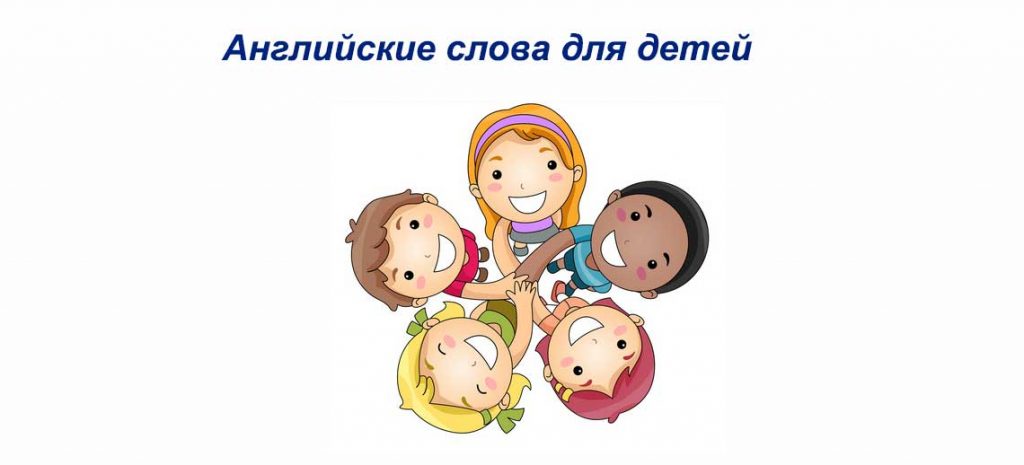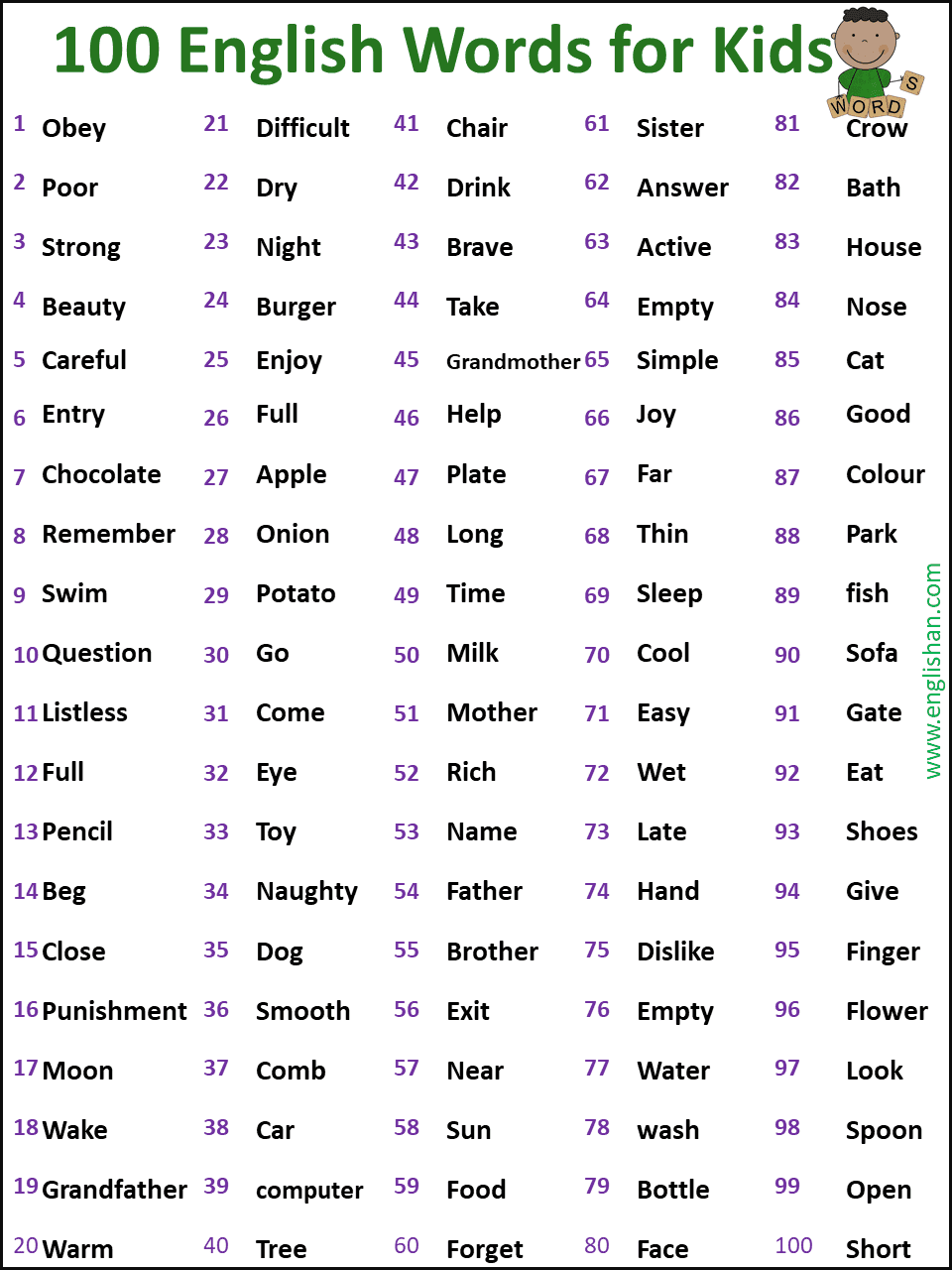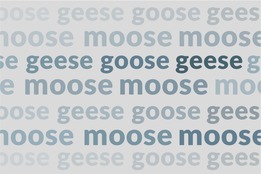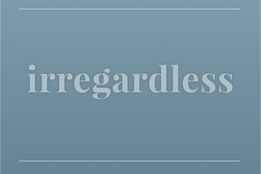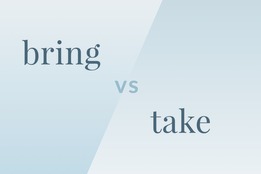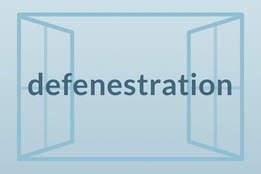Как маленьким деткам выучить английский язык? Существует масса способов, при помощи которых можно добиться успеха. Но когда вопрос касается изучения языка именно ребятами, то начинать лучше с отдельных слов. То есть не учить сразу предложения, а начинать с самых простых слов. Когда у ребёнка будет достаточный запас слов, можно приступать учить фразы, потом – целые предложения. Заметим, что тема большая, поэтому ее уместно поделить на несколько уроков. На 3-4 уроке начинайте учить малыша сочинять с выученными словами небольшие фразы и предложения. И запомните: чтобы тема была выучена с максимальной эффективностью, английские слова для детей лучше учить с наглядными материалами. Большие красочные картинки – лучшее решение. Раскрасьте уроки для детей яркими красками! Поехали за новыми знаниями!
Содержание
- Английские слова для детей: с чего начать?
- Приветствия
- Еда и вкусности
- Фрукты и овощи
- Подводим итоги
Английские слова для детей: с чего начать?
Как мы уже говорили, тема объемная, и ее лучше поделить на несколько разделов, то есть уроков. Рекомендуем изучить сначала такие темы как ‘’Приветствия’’ и ‘’Еда’’ (подразделы -> ‘’Сладости’’, ‘’Мясо’’, ’’Рыбная продукция’’, ‘’Морепродукты’’, ‘’Фрукты’’ и ‘’Овощи’’). Рассмотрим эти темы подробнее и наведем примеры с переводом.
-
Приветствия
- Сказать Привет! Можно несколькими способами => Hello! и Hi!
- Можно также сказать Добро пожаловать => Welcome!
- Когда обстановка официальная, то нужно говорить => Good morning!, Good afternoon!, Good evening!, что означает Доброе утро!, Добрый день! и Добрый вечер!
Когда что говорить? В разговоре с друзьями и близкими — Hello! и Hi!, в школе и во время разговора с незнакомыми людьми -> Good morning!, Good afternoon!, Good evening!
Когда мы прощаемся, то произносим следующие слова =>
- Bye! -> Пока!
- Goodbye! -> До свидания!
- Good luck! -> Удачи!
- See you soon! -> До скорого!
- See you later! -> До встречи!
Правила этикета гласят, что после слов приветствия нужно сказать еще что-то. Несколько фраз. Для этого идеально подойдут следующие фразы =>
- How are you doing? -> Как у тебя дела?
- How are you? -> Как дела?
- How are things? -> Как жизнь?
И ответы на эти вопросы =>
- Excellent -> Прекрасно.
- Great -> Отлично.
- Not bad -> Неплохо.
- Fine, thanks -> Хорошо, спасибо.
Обратите внимание также на следующие фразы =>
- Nice to see you -> Рад вас видеть.
- Glad to meet you -> Рад познакомиться с вами.
- Happy to see you again -> Рад снова видеть вас.
На заметку! Обратите внимание малышей на то, слово рад представлено в вышеприведенных фразах тремя разными словами -> nice, glad, happy. Это объясняется тем, что в английском языке одно слово имеет несколько синонимов, а в фразах может приобретать совсем иное значение. Синонимы и set phrases мы будем учить потом. Просто вкратце объясните детям, почему одно и то же слово на русском представлено тремя на английском языке.
-
Еда и вкусности
Эта тема малышам будет особенно приятной! Кто не любит вкусные торты, сливочные пирожные с кремом, румяные кексы и ароматную выпечку! Печенюшки, тортики и сладкие трубочки так и манят взоры. Будьте уверены, видя красочные картинки с изображением сладостей, малыш сам захочет учиться! Вот увидите!
Полезная лексика =>
- Cake -> кекс, торт
- Cream -> крем
- Cookies -> печенье, домашнее печенье
- Marmalade -> мармелад
- Pudding -> пуддинг
- Sweets -> сладости
- Sponge cake -> бисквит.
Для изучения этих слов используйте ‘’вкусные’’ картинки. Внимание малыша будет вмиг привлечено и с ребенком легко будет работать! А когда с вкусностями разобрались, приступаем к изучению других слов, которые касаются еды =>
- Cheese -> сыр
- Yoghurt -> йогурт
- Sour cream -> сметана
- Curds -> творог
- Meat -> мясо
- Bacon -> бекон
- Duck -> утка
- Pork -> свинина
- Rabbit -> кролик
- Turkey -> индейка
- Chicken -> цыпленок
- Caviar -> икра
- Fish -> рыба
- Fish soup -> уха
- Crab -> краб
- Herring -> сельдь
- Salmon -> лосось
- Sea products -> морепродукты
- Shrimp -> креветка.
Важно! Не давайте малышу много слов за один урок. А то может получиться неразбериха. Возьмите за правило: одно занятие – не более пяти новых слов. Так вы будете уверены, что ребенок хорошо запомнил выученные слова и будет помнить их долго. Но не забывайте при этом регулярно повторять то, что уже было пройдено на прошлом уроке. В противном случае рискуете начинать все сначала, ведь выученные знания без регулярного повторения легко забываются.
Рассмотрим некоторые предложения с вышеприведенными словами =>
- Today I want to cook something delicious. I need some sour cream, some salmon and some caviar. The dish will be amazing! -> Сегодня я хочу приготовить что-то очень вкусное. Мне нужно немного сметаны, немного лосося и немного икры. Блюдо будет великолепным!
- What is it? – This is a shrimp. It is a seaproduct -> Что это? Это креветка. Морепродукт.
- Do you like crabs? – Yes, of course. They are very delicious and very expencive -> Ты любишь крабов? – Да, конечно. Они очень вкусные и очень дорогие.
- I prefer fish for dinner but my husband likes meat more -> На ужин я предпочитаю рыбу, но мой муж больше любит мясо.
- If you buy some pork I will make tasty chops -> Если ты купишь немного свинины, я сделаю вкусные отбивные.
- For breakfest I choose curds and yoghurt, and you? -> На завтрак я выбираю творог и йогурт, а ты?
Обратите внимание! Чтобы заинтриговать малыша и заставит его брать активное участие в беседе, задавайте встречные вопросы. Вот как в последнем предложении. После того, как скажете свое предложение, спрашивайте -> And you? Так вы будете уверены, что малыш слушает, что вы говорите, и параллельно будет расширять свой запас слов.
Можете также спросить:
- And what about you? (Как насчет тебя?)
- Will you agree with me? (Ты согласен со мной?)
- Do you think the same as me? (Ты думаешь так же, как и я?)
Смотрите, чтобы ребенок не повторял ваши слова, а говорил новые. Так результат будет более эффективным.
-
Фрукты и овощи
В отдельную подкатегорию выделим фрукты и овощи. Они все же должны идти отдельно от стандартной еды. Эту подтему рекомендуем выделить отдельным уроком. И тут-то картинки можно использовать во всех красках! Зеленые, фиолетовые, красные, синие, желтые… Палитра красок будет играть всей сочностью своего цвета! Деткам будет интересно и увлекательно! Вот увидите!
Полезная лексика =>
- Apple -> яблоко
- Apricot -> абрикос
- Grapefruit -> грейпфрут
- Grape -> виноград
- Plum -> слива
- Cherry -> вишня
- Sweetcherry -> черешня
- Strawberry -> клубника
- Cucumber -> огурец
- Tomato -> помидор
- Potato -> картошка
- Artichoke -> артишок
- Cabbage -> капуста
- Eggplant -> баклажан
- Carrot -> морковь
- Celery -> сельдерей.
Чтобы слова легче запомнились, приведем несколько фраз =>
- Sweet strawberry -> сладкая клубника
- Delicious sweetcherry -> очень вкусная черешня
- Sour cherry -> кислая вишня
- Big plum -> большая слива
- Green apple -> зеленое яблоко
- Tasty potato -> вкусная картошка
- Orange carrot -> оранжевая морковь.
На заметку! Чтобы слова были выучены быстрее, поиграйте с детьми в незатейливую игру. Игра очень простая, она состоит из вопросов. Например, вы спрашиваете: Is plum red or blue? (Слива красная или синяя?) Малыш должен ответить, назвав нужный цвет. Но смотрите, чтобы дети говорили в ответ не одно слово, а целое предложение. Более того, задайте встречный вопрос: If plum is blue, what fruit is red? (Если слива синяя, какой фрукт – красный?) Малышу будет очень интересно, тем более если в качестве подсказок вы будете использовать яркие картинки.
Подводим итоги
Научить малыша быстро говорить на английском – реально! Для этого нужно терпение, правильный подход к изучению материала и красочные наочные материалы. Если хотите, чтобы занятия с детьми были эффективными, и ребята начали говорить на английском с первого урока, используйте большие картинки с яркими изображениями и буквами (первая буква слова). Такое простое правило дает сильнодействующий результат. Вот увидите – малыш будет схватывать информацию на ходу! Ассоциации – верный способ сделать уроки эффективными!
Советуем изучить материал про 1000 слов на английском, которые нужно знать новичку в первую очередь, в котором сгруппированы часто употребляемые слова по тематикам.
Успехов и покорения новых вершин!
Просмотры: 7 565
Check List of Words For Kids Here
Why do you think words are so important in effective communication? It is important to understand the fact that meaningful sentences are made using proper words. Therefore, parents and teachers need to introduce words for kids that will improve all areas of communication. Without using appropriate words, it is difficult to interpret information. Kids at an early age start picking up words around them. This is the right age where they start developing curiosity to learn new words.
Initially, a list of words for kids should be considered which are easy and simple to understand in order to develop their language skills. However, it is necessary to teach words to kids that are essential for their communication. Before this, kindergarten spelling words will help kids to spell easy words in order to communicate with others.
Parents and teachers can prepare a list of words for kids that they think is appropriate for them to use in everyday life. At an early age, you should use words for kids in order to improve their vocabulary skills. It not only helps in developing language skills but also improves grammatical concepts for educational development.
To understand better, cvc word games for kids will be a great help to learn basic grammar for reading and writing. Teaching a list of words for kids takes a lot of effort. Therefore, incorporating innovative and creative activities or games can boost their understanding of words and eventually improve their language skills. Apart from this, color by sight words can inculcate interests in learning new words with the help of attractive colors and themes.
List of Words For Kids
On the other hand, parents and teachers can focus on how to enhance their learning experience by teaching great words for kids.
Some of the list of words that kids can learn and develop their communication skills are as follows:
- Ch Words For Kids
- Compound Words for Kids
- Describing Words For Kids
- Halloween Words
- Multiple Meaning Words
- Opposite Words for Kids
- Ph Words For Kids
- Pictionary Words for Kids
- Positive Words for Kids
- Rhyming Words For Kids
- Rhyming Words Worksheet
- Root Words For Kids
- Summer Words
- Thanksgiving Words
- Valentine’s Day Words
- Th Words For Kids
- Vocabulary Words for Kids
- Wh Words for Kids
Words For Kids By Alphabet
- Words That Start With A
- B Words for Kids
- C Words For Kids
- D Words for Kids
- E Words For Kids
- F Words for Kids
- G Words For Kids
- H Words for Kids
- I Words For Kids
- J Words For Kids
- K Words For Kids
- M Words For Kids
- N Words For Kids
- O Words For Kids
- P Words For Kids
- Q Words For Kids
- R Words For Kids
- S Words for Kids
- T Words For Kids
- U Words For Kids
- V Words For Kids
- W Words For Kids
- X Words for Kids
- Y Words For Kids
3 Letter Words For Kids
- 3 Letter Words Starting with A
- 3 Letter Words Starting With E
- 3 Letter Words Starting With J
- 3 Letter Words Starting With I
- 3 Letter Words Ending In Y
- 3 Letter Words Ending in E
- 3 Letter Words Ending in C
- 3 Letter Words Ending With A
- 3 Letter Words Ending With H
- 3 Letter Words Ending in I
- 3 Letter Words Starting With Z
- 3 Letter Words Starting With V
- 3 Letter Words Ending In J
- 3 Letter Words Starting With U
- 3 Letter Words Ending in Q
- 3 Letter Words Ending With Z
- 3 Letter Words Starting With S
- 3 Letter Words Starting With Q
- 3 Letter Words Ending In O
- 3 Letter Words Ending In U
- 3 Letter Words Starting With O
Four Letter Words For Kids
- Four Letter Words Ending In A
- Four Letter Words Ending in B
- Four Letter Words Ending in C
- Four Letter Words Ending in F
- Four Letter Words Ending In H
- Four Letter Words Ending In I
- Four Letter Words Ending in J
- Four Letter Words Ending in O
- Four Letter Words Ending In Q
- Four Letter Words Ending In U
- Four Letter Words Ending In V
- Four Letter Words Ending in W
- Four Letter Words Ending In X
- Four Letter Words Ending in Z
- Four Letter Words Starting With C
- Four Letter Words Starting With F
- Four Letter Words Starting with S
- Four Letter Words That Start With A
- Four Letter Words That Start With B
- Four Letter Words That Start With D
- Four Letter Words That Start With E
- Four Letter Words that Start with G
- Four Letter Words That Start With I
- Four Letter Words That Start With J
- Four Letter Words That Start With K
- Four Letter Words that Start with M
- Four Letter Words that Start with N
- Four Letter Words that Start with P
- Four Letter Words That Start With Q
- Four Letter Words That Start With T
- Four Letter Words That Start With X
- Four Letter Words That Start With Y
- Four Letter Words that Start with Z
- Funny Four Letter Words
Christmas Words
- Christmas words that start with A
- Christmas Words that Start with B
- Christmas Words That Start With C
- Christmas Words that Start with D
- Christmas Words that Start with E
- Christmas Words that Start with I
- Christmas Words that Start with K
- Christmas Words That Start With L
- Christmas Words That Start With M
- Christmas Words That Start With N
- Christmas Words That Start With O
- Christmas Words That Start With Q
- Christmas Words That Start With U
- Christmas Words That Start With Z
Sight Words For kids
- What are Sight Words?
- Kindergarten Sight Words
- Preschool Sight Words
- First Grade Sight Words
- 2nd Grade Sight Words
- 3rd Grade Sight Words
- Color by Sight Words
Spelling Words For kids
- Kindergarten Spelling Words
- 1st Grade Spelling Words
- 2nd Grade Spelling Words
- 3rd Grade Spelling Words
- Hard Spelling Bee Words
- Easy Spelling Words
Great Words For Kids
Kids from an early age are given easy spelling words in order to learn the formation of meaningful sentences. For that, one should abide by the grammar rules for effective interpretation of information. Parents and teachers can conduct fun and entertaining activities to learn new words. Prior to this, kids should know what are sight words? These are the most commonly used words in the sentences such as are, is, to, at, the, by, we, here, etc. A list of words for kids are introduced in the form of worksheets, videos, charts, games, etc. With this, it is extremely easy for them to understand the meaning of words and know where to incorporate them while making sentences.
Kids are always curious to learn new words around them. They come up with words and ask questions associated with it. This develops critical thinking abilities among kids. They want to know everything related to the words. Moreover, it is important for them to explore words by involving themselves in some activities. For example, kids in general love to know about christmas or halloween words which brings a feeling of joy in them. Therefore, parents can introduce words related to the celebration or any specific content in order to increase their vocabulary.
Benefits of Using Words For Kids
Some of the benefits of using words for kids are mentioned below:
- Helps in cognitive development.
- Develops language and vocabulary skills.
- Helps in understanding frequently used words.
- Enhances learning experience.
- Improves writing skills and reading skills.
- Builds confidence among children.
- Improves pronunciation.
- Helps in writing meaningful sentences by using sight words.
- Improves spelling skills.
- Improves grammatical concepts.
- Helps in understanding the words and incorporating them in sentences.
- Develops problem solving and critical thinking skills among kids.
- Enhances creativity and mental stability.
- Improves academic performance.
Tips to Teach Words for Children
Some of the tips for kids to teach words in developing communication skills are mentioned below:
- Encourage the children to learn new words.
- Ask kids to repeat the words and its spellings for better retention.
- Motivate kids to learn words on a regular basis.
- Provide reading materials in order to come up with new words.
- Conduct innovative activities to come up with great words for kids.
- Include flashcards, images, graphics, worksheets etc to teach words.
- Teach difference between consonants and vowels.
- Develop spelling skills by making them regularly read and write.
- Understand the spelling rules in order to learn correct spellings of words.
- Include story and essay writing in their curriculum.
To learn words, parents and teachers need to focus on improving grammatical concepts among the children. Once they are acquainted with grammar, there will be a clear exchange of information without any misunderstanding. Kids at this age learn words that are easy and simple to understand. Make sure that there is no usage of jargon while communicating. Kids at kindergarten and preschools need extra attention in terms of spelling and pronunciation. Using great words for kids will make them feel positive about learning new things. However, there are also words that have multiple meanings associated with them.
For example, bark, can, right, bat, etc. These are similar words but with different meanings. Therefore, multiple meaning word games for kids will enhance their understanding of the difference in words.
To get more information, explore related articles on spelling rules, spelling games for kids, and reading games for kids here.
Frequently Asked Questions on Words For Kids
Why Are Words For Kids Important?
Words for kids play an important role in improving and developing their communication skills and vocabulary. A solid vocabulary help kids create new and simple sentences by using the right words. Learning new words supports children to generate creative ideas and improve their logical thinking capabilities.
How to teach new words for kids?
Teaching new words for kids play an important role in building their confidence and vocabulary. You can ask them to read a simple sentence or a paragraph aloud, initiate meaningful conversations, encourage them to name a few objects they use or see daily, like, books, trees, sky and many others.
How To Explain The Meaning Of Words For Kids?
Explaining the meaning of words for kids can be done in this way. You can let kids notice and read the word aloud. You can read along with them and mimic the sounds of animals and ask the kid to identify the animals. Also, repeat some words that are used regularly so that kids don’t forget them.
10000+ результатов для ‘vocabulary for kids’
Family for kids
Совпадающие пары
Дошкольник
1-й класс
2-й класс
3 класс
English
family
family for kids
family members
mother father
Цифры
Ударь крота
китайский язык
ESTC for kids
Даты
Сопоставить
Easy Steps to Chinese for kids 3A
Kid’s Box 3 Unit 2 Words
Совпадающие пары
kids
1-й класс
2-й класс
3 класс
4-й класс
Начальная школа / начальная
English
House
Kids Box 3
Vocabulary
Fun for Flyers. 24
Диаграмма с метками
4-й класс
5-й класс
6 класс
Начальная школа / начальная
Средняя школа
Среднее образование
English
English for kids
Fun for Flyers
YEL
young English learners
Fun for Flyers. 28
Угадай буквы
4-й класс
5-й класс
6 класс
Начальная школа / начальная
Средняя школа
Среднее образование
English
English for kids
Fun for Flyers
YEL
young English learners
Tenses
Случайное колесо
Grammar and Vocabulary for RSE
Prepositions
Групповая сортировка
Grammar and Vocabulary for RSE
If you want to teach vocabulary to toddlers and other small kids, you must start with the basic, very simple, easy-to-learn, and daily used vocabulary. If you are not sure which type of vocabulary words are easy yet important for your kids to learn, then this post is for you. You can teach your children basic vocabulary from our 100 basic vocabulary words for kids list along with their pictures and meaning. This post is designed especially for kids that cover more than 20% of their daily used vocabulary. Let’s together help the kids to enhance their vocabulary collection.
|
1. Obey Obey my order. |
|
2. Mother I love my mother. |
|
3. Poor Respect the poor. |
|
4. Strong Stay healthy and strong. |
|
5. Rich He is a rich man. |
|
6. Beauty Simplicity is the best beauty. |
|
7. Name What’s your name? |
|
8. Careful Be careful. |
|
9. Father I love my father. |
|
10. Entry I’ll not allow your entry. |
|
11. Brother I have three brothers. |
|
12. Far He was sitting far away from his friend. |
|
13. Chocolate Don’t eat chocolate every day. |
|
14. Exit Where is the exit door? |
|
15. Forget Don’t forget to come. |
|
16. Remember Remember to offer prayer. |
|
17. Near I am near your house. |
|
18. Swim Don’t swim in muddy water. |
|
19. Question Do you have any questions? |
|
20. Listless He is feeling listless nowadays. |
|
21. Full This table is full. |
|
22. Pencil Give me your pencil. |
|
23. Sun Sun is the biggest source of energy. |
|
24. Beg Don’t beg for something. |
|
25. Close Close your eyes. |
|
26. Simple I like simple people. |
|
27. Punishment I don’t want to give you punishment. |
|
28. Moon Half-moon seems very beautiful. |
|
29. Joy The midnight was full of joy. |
|
30. Wake Wake up early. |
|
31. Warm Don’t drink warm water. |
|
32. Difficult This lesson is not difficult. |
|
33. Open Open your eyes. |
|
34. Dry I like dry fruits. |
|
35. Night The sky is full of stars at night. |
|
36. Burger Do you like burgers? |
|
37. Enjoy Enjoy your meal. |
|
38. Full The bucket is full of water. |
|
39. Food Vegetables are healthy food. |
|
40. Apple Eat one apple per day. |
|
41. Onion I don’t like to eat onion. |
|
42. Potato I like potatoes. |
|
43. Go Go to sleep early. |
|
44. Come Come here. |
|
45. Eye He has beautiful eyes. |
|
46. Toy Kids like to play with toys. |
|
47. Naughty He is very naughty. |
|
48. Dog Dogs are human’s best friends. |
|
49. Smooth Some clothes are very smooth. |
|
50. Comb Comb your hair. |
|
51. Car I like a black car. |
|
52. Tree Trees are the source of oxygen. |
|
53. Chair I was sitting on a chair. |
|
54. Drink Drink water slowly. |
|
55. Brave Be brave. |
|
56. Take You can take this pencil. |
|
57. Grandfather I love my grandfather. |
|
58. Help Help the poor. |
|
59. Bottle Fill the water in the bottle. |
|
60. Plate Why did you break the plate? |
|
61. Long She has long hair. |
|
62. Time Don’t waste time. |
|
63. Milk I love drinking milk. |
|
64. Sister I have three sisters. |
|
65. Answer Answer this question. |
|
66. Active He is very active |
|
67. Empty The room is empty. |
|
68. Sleep Go to sleep. |
|
69. Cool The water is cool. |
|
70. Easy The paper was very easy. |
|
71. Wet The baby was wearing wet clothes. |
|
72. Late Don’t be late. |
|
73. Hand Wash your hands. |
|
74. Dislike I dislike dishonesty. |
|
75. Empty Why the house is empty? |
|
76. Water Don’t waste water. |
|
77. Wash Wash your face. |
|
78. Face The baby looked at me with a smiley face. |
|
79. Crow Crow is an intelligent bird. |
|
80. Bath Take bath daily. |
|
81. House Keep your house clean. |
|
82. Nose His nose was bleeding. |
|
83. Cat Cat is a beautiful pet. |
|
84. Good Do good, have good |
|
85. Small His house is very small. |
|
86. Colour Pakistanis have a brown color. |
|
87. Park Park the car on the side. |
|
88. fish Fish live in water. |
|
89. Sofa This sofa is very comfortable. |
|
90. Gate Open the gate. |
|
91. Eat Eat the meal slowly. |
|
92. Shoes Which shoes would you like to wear? |
|
93. Give Give me a glass of water. |
|
94. Finger Lower your finger. |
|
95. Flower I love rose flowers. |
|
96. Look Look at me. |
|
97. Spoon This spoon is made of steel. |
|
98. Short Please choose the short route. |
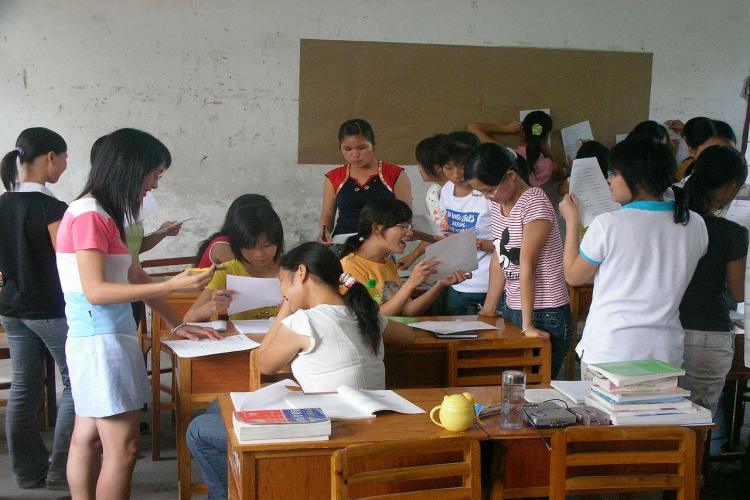
Developing vocabulary is critical for a child during their schooling, and parents need to continuously put in efforts to ensure that their kids develop an excellent vocabulary. Learning Basic English words for kids is important since it helps in their holistic development and motivates them to do well in today’s world. Below is a list of important words which every kid must be aware of.
Simple Words For Kids
Below is a list of words along with their meanings which each kid from grade 1 to grade 4 must know.
Also Read: Maths Quiz for Kids: Simple & Engaging Math Quiz Questions with Answers
Learning courses for your kids! Get free trial here
Basic English Words for Kids in Grade 1
- Annoy: Making someone angry
- Calm: Free of any disturbance
- Consequences: An unpleasant or unwelcome result of an action
- Decide: Choose out of several alternatives
- Discover: Find something unexpectedly or during a search.
- Enormous: Something big or huge
- Explore: Learn about something or inquire about a subject in detail.
- Grumpy: Someone who is bad-tempered and irritable
- Ignore: Fail to consider something important
- Investigate: Carry out an inquiry to discover and examine facts to establish the truth
- Jealous: Feeling protective of one’s right or possession
- Leader: An individual who commands a group, country, or an organization
- Lovely: Extremely beautiful or attractive
- Miserable: Unhappy or uncomfortable
- Mumble: Say something quietly and make it difficult for others to hear
- Negative: Refuse to accept or reject something
- Nervous: Easily agitated or alarmed
- Notice: Observing a fact or paying attention to something
- Opposite: Completely different from something
- Precious: Something of great value which needs to be treated carelessly
- Problem: A situation regarding something unwanted or unwelcome.
- Protect: Keep someone safe from harm or injury
- Respect: Admire someone because of their abilities or achievements
- Special: Better or different from what is usual
- Uncomfortable: Feeling slight pain or discomfort
Basic English Words for Kids in Grade 2
- Amaze: To fill with wonder
- Amusing: Something causing laughter or providing entertainment
- Cause: An individual who gives rise to an action or a condition
- Community: A group of people residing at the same place or having something in common
- Continue: Resuming something after an interruption
- Data: Facts of a process
- Detail: Full information about something
- Difference: A point in which people or things are dissimilar
- Edit: Correct or change something from the original version
- Escape: Break free from confinement or control
- Famous: Known by many individuals
- Gasp: Catching breath with an open mouth
- Gust: Strong rush of wind
- Include: Contain as a part of the whole
- Label: Phrase or name applied to a thing or a person
- Living: The pursuit of a lifestyle of some specific types
- Matter: A Subject or situation under consideration
- Necessary: Something that is important
- Noticed: Become aware of, mention or remark on
- Opinion: A statement of advice by an expert or professional on a matter, a view, or judgment formed about something
- Plan: A detailed proposal or achieving something
Also Read: Science Activities for Kids: Interesting Activities for Your Kids to Learn From
Basic English Words for Kids in Grade 3
- Agreeable: Have a similar or same opinion about something
- Arrange: Put things in a neat, attractive, or required order.
- Assist: Help someone by doing a share of the work
- Dangle: Hang or swing loosely
- Details: Give full information about something, an individual fact, or item.
- Examine: Test the knowledge or proficiency by requiring them to answer questions or perform tasks
- Fatal: Leading to failure or disaster, or causing death.
- Gathered: Bring together and take in from scattered places or sources
- Infer: Deduce or conclude something from evidence and reasoning rather than from explicit statements
- Intelligent: Having or showing intelligence, especially of a high level.
- Marine: Relating to or found in the sea
- Pleasant: Giving a sense of happy satisfaction or enjoyment
- Purpose: The reason for which something is done or created or for which something exists
- Region: An area, especially part of a country or the world having definable characteristics but not always fixed boundaries
- Scar: A mark left on the skin or within body tissue where a wound, burn, or sore has not healed completely and fibrous connective tissue has developed
- Solution: A means of solving a problem or dealing with a difficult situation
Learning courses for your kids! Get free trial here
Basic English Words for Kids in Grade 4
- Accomplish: Achieve or complete successfully
- Argued: Give reasons or show evidence in support of an idea, action, or theory, typically to persuade others to share one’s view
- Border: The edge or boundary of something, or a part near it.
- Calculate: Determine something mathematically
- Compare: Estimate, measure, or note the similarity or dissimilarity between.
- Convince: Cause someone to believe firmly in the truth of something.
- Decrease: Become smaller or fewer in size, amount, intensity, or degree.
- Organized: Arranged or structured in a systematic way
- Persuade: Induce someone to do something through reasoning or argument.
- Eliminate: Completely remove or get rid of something.
- Evidence: The available body of facts or information
- Exclaimed: Cry out suddenly in surprise, strong emotion, or pain
- Fortunate: Favoured by or involving good luck
- Increasing: Becoming greater in amount, size, or degree
- Insert: Place, fit, or push something into something else
- Typical: Having the distinctive qualities of a particular type of person or thing
- Passage: The action or process of moving through or past somewhere on the way from one place to another
- Disappointed: Sad or displeased because someone or something has failed to fulfil one’s hopes or expectations
- Tradition: The transmission of customs or beliefs from generation to generation, or the fact of being passed on in this way
Also Read: Online Quiz for Kids: Enhance Their Knowledge of the World around Them
Opposite Words in English
Below is a list of opposite words for kids that students must know while learning English.
- Go: Come
- Grateful: Ungrateful
- Guilty: Innocent
- Honesty: Dishonesty
- Here: There
- Young: Old
- Wise: Foolish
- Wild: Domestic
- Wet: Dry
- Weak: Strong
- Warm: Cool
- Victory: Defeat
- Up: Down
- Truth: Untruth
- Trust: Doubt
- Thick: Thin
- Temporary: Permanent
- Slow: Fast
- Sleep: Awake
- Above: Below
- Absent: Present
- Ability: Inability
- Accept: Refuse/Reject
- Advance: Retreat
- Advantage: Disadvantage
- Adversity: Prosperity
- Agree: Disagree
- Allow: Disallow
- Alive: Dead
- All: None
- Always: Never
- Ancient: Modern
- Appear: Disappear
- Attractive: Repulsive
Conclusion
These new words for kids mentioned in this article will help students in the current highly competitive world. Teaching kids these words, their meanings, and opposites will help them when they grow up. This article will help kids build an excellent vocabulary which will help them perform better in both schools as well as real life.
Using these words regularly with your kids while conversing with them will help them to remember these words in a much faster manner. Using these words in the proper context will allow your kids to learn these words in a much simpler and faster manner. You can visit The Real School Of Montessori website to read more such articles giving you tips to help your kids English.

About the Author
Aaditya might have completed his engineering in computer science, but he has always had a passion for writing. He believes that writing a code and a story are much more similar than they might seem. You need to imagine the end product in both of them and you can only reach there once you start writing. Aaditya’s love for food is the only thing he can’t describe with words and more than eating he enjoys cooking for his family and friends. In his free time, Aaditya enjoys watching cricket and football. He knows how to lighten the mood with one-liners in a serious situation. If he is not writing or reading about any of his interests, you can find Aaditya in a sports bar cheering for his favourite sports club.
View All Articles
Ask the Editors
-
Weird PluralsOne goose, two geese. One moose, two… moose. Wh…
-
IrregardlessIt is in fact a real word (but that doesn’t mean …
-
Bring vs. TakeBoth words imply motion, but the difference may b…
-
DefenestrationThe fascinating story behind many people’s favori…
Word Games
-
Name That Hat!Time to put on your thinking cap.
Take the quiz
-
Name That FlowerCan you tell the difference between a lilac and a…
Take the quiz
-
True or False?Test your knowledge — and maybe learn something a…
Take the quiz
-
Spelling Bee QuizCan you outdo past winners of the National Spelli…
Take the quiz
- Home
- Words Exercises
Teach your child this English vocabulary words with pictures and help them to write and speak easily. Browse through the variety of vocabulary exercises to teach children words with pictures.
Teach your child this English vocabulary words with pictures and help them to write and speak easily. Browse through the variety of vocabulary exercises to teach children words with pictures.
Learning vocabulary is essential for your kids communication and knowledge. This section consists of variety of vocabulary lesson plans and vocabulary worksheets with basic learning for kids such as names of fruits, vegetables, transport, birds, flowers, plants, and much more. These English vocabulary words with pictures for kids provides worksheets and exercises can grab the full attention of your kid while learning.

